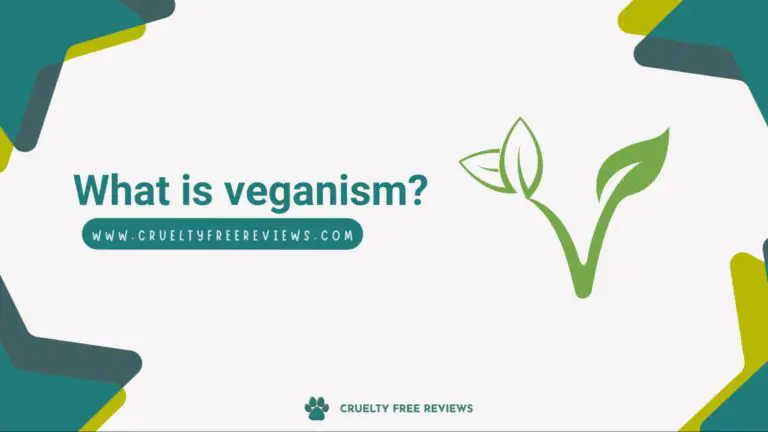Vegan is a diet that excludes every animal-sourced produce, at least for most people. On the other hand, it is more than that. In fact, being vegan affects all aspects of life, from eating to dressing to entertainment. We don’t eat any animal products – not even honey -, we don’t wear leather and we boycott entertainment such as circus with animals.
So it may seem like veganism involves a lot of sacrifices, but the reality is that a new world is opening up for us. There are countless nutrient-rich vegan foods, environmentally friendly clothing – such as linen -, and alternatives for zoos like animal sanctuaries.
Fortunately, veganism – and vegetarianism – has become increasingly popular in recent years. Nowadays, there are more than 1 percent of the world’s population consider themself vegan, which is approximately 90 million people. Most of them chose this lifestyle for animal welfare, health and the environment.
Although many consider veganism to be a recent trend, its roots go back much deeper than decades and it is more complicated than eating only plants and not eating animals. Let’s check the facts and details about veganism!
Table of Contents
What is vegan?
Veganism is a diet that is more like a lifestyle since it affects every aspect of the person’s life.
What does it mean? In a nutshell, according to the first dedicated vegan organization, called Vegan Society: Veganism is a way of life that aims to exclude, as far as is possible and practicable, all forms of exploitation and cruelty to animals for food, clothing, or any other purpose.
It means vegans not only refuse to eat anything that contains animal-sourced ingredients, but anything that involves the exploitation of animals, whether it’s entertainment – circus -, cosmetics – animal testing – or clothing – wool. Eggs, for example, are not directly linked to cruelty but are nevertheless an exploitation of poultry.
History of veganism
Veganism is an increasingly popular trend nowadays, but its origins go far back in history, appearing in advanced ancient cultures, including the first Indus Valley civilization between 3300 and 1300 BCE. Furthermore, several ancient philosophers mention many different meat-free diets, and the well-known polyhistor, Pythagoras was the first to define vegetarianism.
Straight forward to 1806, there are records of American and British communities rejecting animal food, clothing, and animals as tools of labor. The first official vegetarian society was formed in England in 1847, followed by other societies dedicated to plant-based diets in America in 1850 and in Germany in 1867.
In 1944, Donald Watson first defined the word vegan, aka dairy-free vegetarianism, and founded the first Vegan Society. The same year, he published the first edition of The Vegan News, which is still published today. In the following years, vegan advocacy groups were founded in many other countries, including America, Germany, and Ireland.
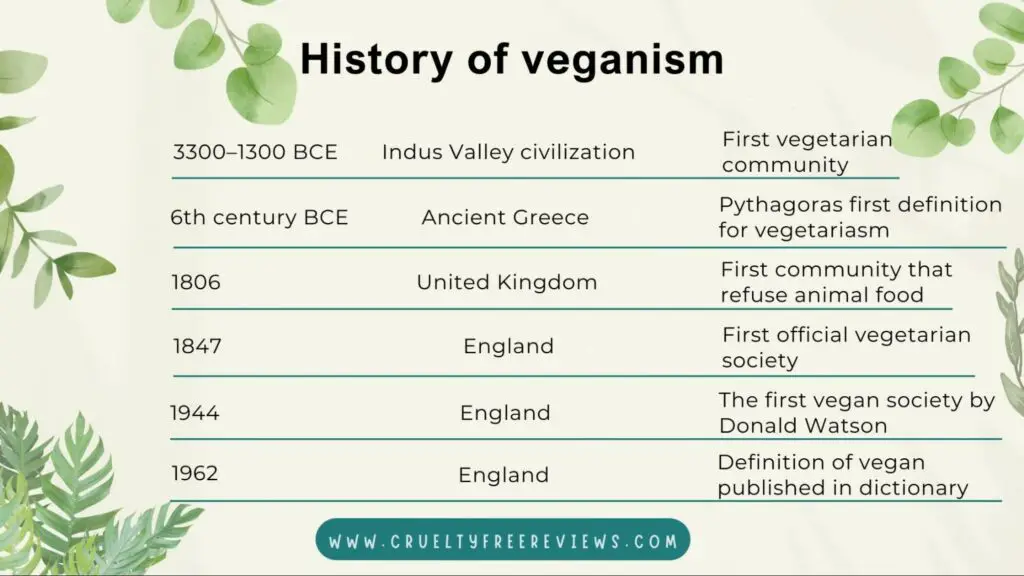
What is the definition of veganism?
The first definition was published in 1962 in the Oxford Illustrated Dictionary: “The vegan is a vegetarian who eats no butter, eggs, cheese, or milk”. Despite the long roots of this dietary trend, it is difficult to define it because various advocacy groups from different countries have come up with varying definitions of veganism.
In a study later published in Science Direct 2021, Madelon North investigated which definition of veganism best describes what veganism is for omnivores and vegans. 640 people took part in the international survey and there were six different determinations. According to the study, the following definition specified by the British Vegan Society is the most accepted explanation:
“Veganism is a philosophy and way of living which seeks to exclude—as far as is possible and practicable—all forms of exploitation of, and cruelty to, animals for food, clothing or any other purpose; and by extension, promotes the development and use of animal-free alternatives for the benefit of animals, humans, and the environment.” The Vegan Society.
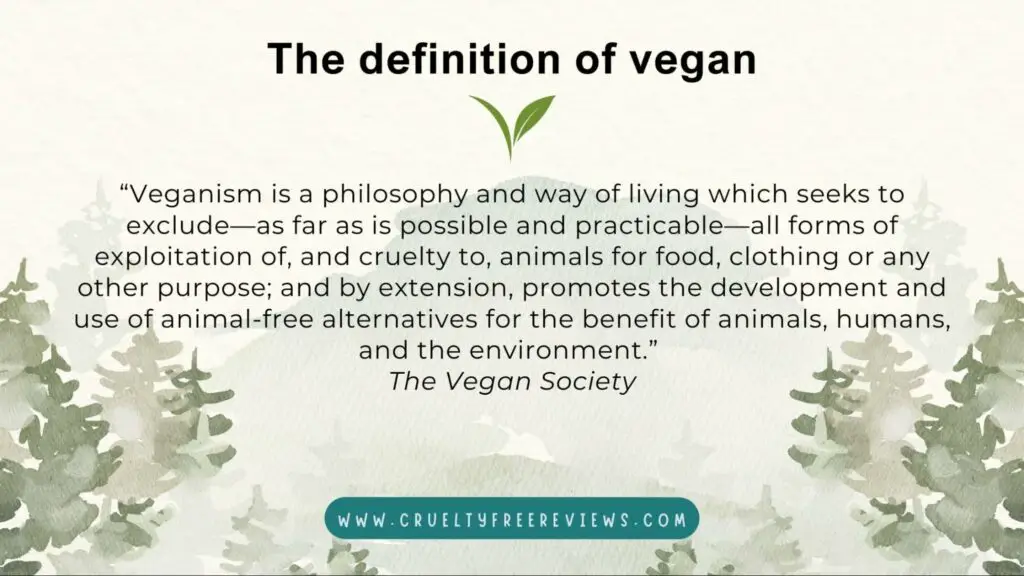
What is the meaning of vegan?
The term “vegan” comes from the word vegetarian, so we have to take a look at it first. The vegetarian word was first used in 1839 as a vegetable diet. Its origin is an irregular compound of vegetable and the suffix arian which means supporter in short.
The word “vegan” was invented by Donald Watson and his wife-to-be in 1944. It is derived from the first three and last two letters of the word vegetarian since the British animal rights activist believes that it is the beginning and end of vegetarianism.
Watson’s newly founded newspaper, The Vegan News, asked its readers to come up with a good word for dairy-free vegetarian, namely vegan. There were many ideas such as “dairyban”, “allvega”, or “sanivores” , however, the term stayed “vegan”. In 1947, The Vegan Society clarified that they rejected every animal food source, not only dairy and meat.
What is the symbol of veganism?
The most commonly used vegan symbol is the circled letter “v”, which, although unofficial, is widely and internationally accepted. In addition, you will most often see the International V-label, promoted by the European Vegetarian Union, on the packaging of products, which is an internationally recognized and protected trademark for vegan products.
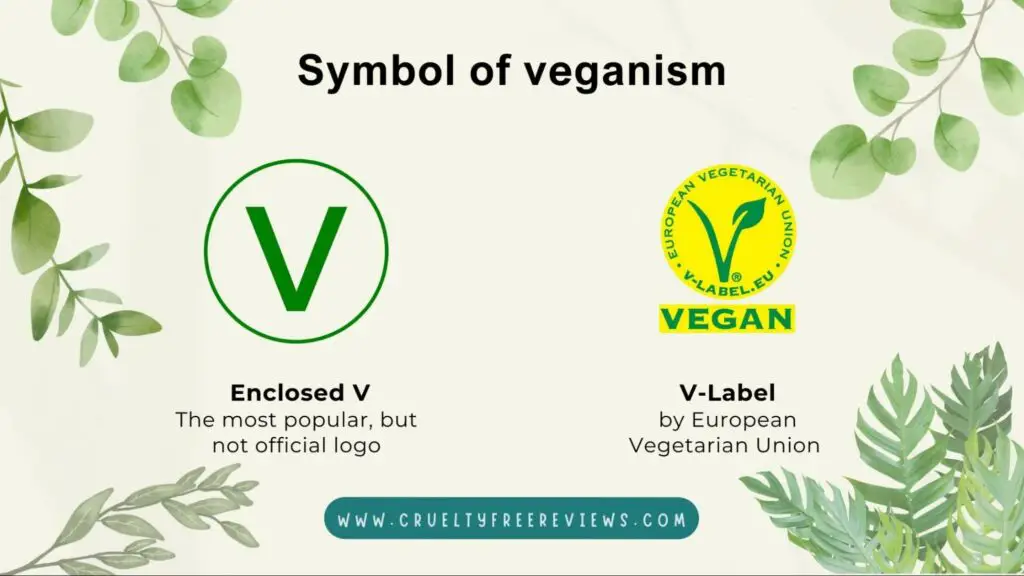
What is the difference between vegans and vegetarians?
In short, the difference between vegetarians and vegans is that vegetarians eat eggs, honey, dairy products, and everything else that is not directly connected to killing, while vegans refuse everything apart from plants. Furthermore, veganism tends to be more than a diet, it is a lifestyle that affects every aspect of people’s lives. For example, a vegan does not go to a circus that exploits animals for entertainment.
Types of vegan
Nowadays there are plenty of different types of vegan. The following is a list of the most common of these:
- Raw vegans: A person who follows the raw vegan diet eats nothing but uncooked vegetables, fruits, and nuts. Some of them follow an even stricter diet, the so-called fruitarian diet, which means they eat only raw fruit.
- Dietary vegans: Dietary vegans refuse to eat any kind of animal ingredients, however, they still use leather or wool items.
- Ethical vegans: In short, the ethical vegans are the regular vegans since they don’t eat anything that can be connected to animals and they refuse to use cosmetics that are tested on animals, or clothes that are made of wool or leather, and so on.
- Whole-food Vegan: As a vegan, you reject all foods that involve animals, but that doesn’t mean you’re eating healthily, as there are many unhealthy vegan foods, such as chips and various cookies. However, whole-food vegans not only refuse to eat animal products but avoid all kinds of processed foods as well.
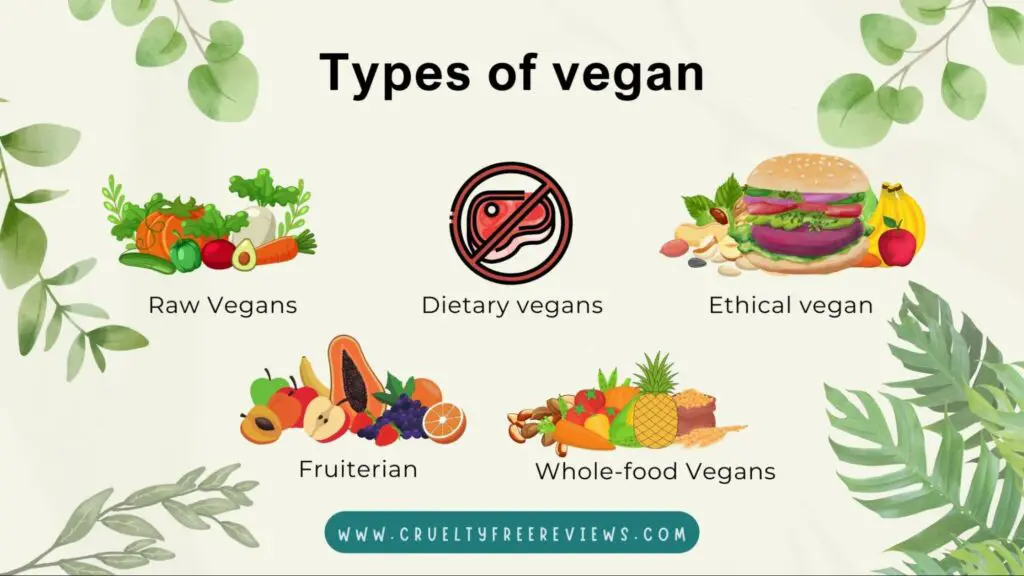
How many people are vegan?
Around 1 percent of the world is vegan, which means that by 2023, there are an estimated 88 million vegans around the world. However, it is quite hard to tell exactly how many people are vegan. Most of the countries don’t make any surveys about veganism. On the other hand, there are a few exact numbers about veganism.
In number and also in percentage, the absolute winner is India thankfully to Hinduism. About 13 percent – some other survey by IPSOS tells 19 % – of the population in India are vegan. Veganism is very popular in North America, especially in Mexico where the. 9 percent of the population is vegan. According to 2023 surveys 1,5 percent of the the United States citizens are vegans, which means there are more than 5 million vegan people in the USA.
Why do people go vegan?
There are many different reasons why people choose the vegan lifestyle. The key motivation for most vegans is animal welfare. We strongly believe that all animals have a right to live in freedom. The other popular reason is the health. Many researchers suggest that the vegan diet is healthier than omnivores. Furthermore, sustainability is a key motivation as well. Animal agriculture is one of the most polluting industries.
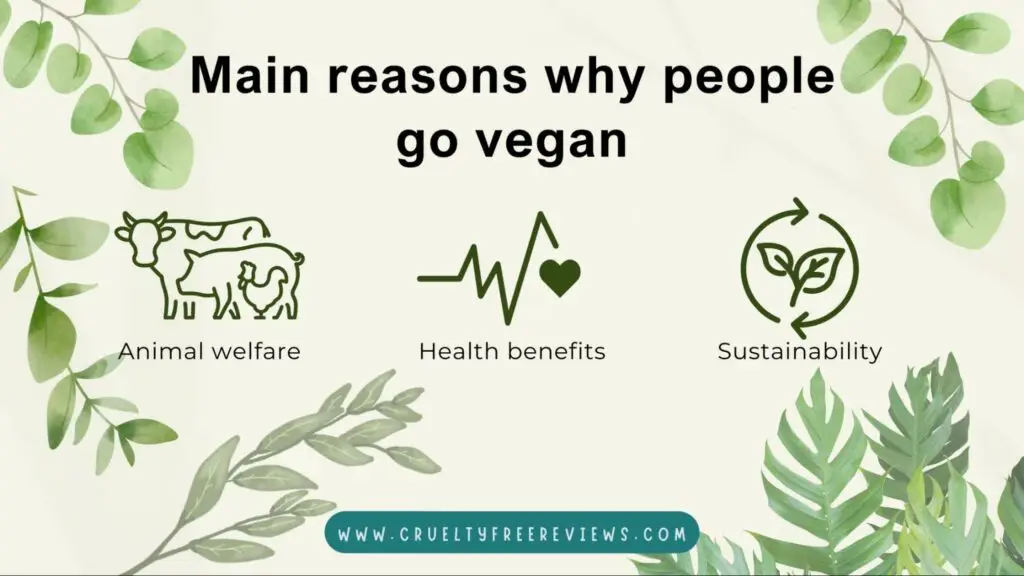
Is being vegan healthy?
One of the main reasons why people choose a vegan diet is health. There is a wealth of research showing that a balanced vegan diet is perfectly healthy. In fact! Not only is it healthy, it reduces the risk of countless diseases. Just some of the key arguments:
- It reduces the risk of heart disease. The results of a 2019 study show a significant reduction in the risk of cardiovascular disease among people who follow a plant-based diet.
- Reduces the risk of type 2 (adult onset) diabetes. Several studies, including this one, show that people who eat a plant-based diet have a much lower rate of type 2 diabetes.
- Reduces the risk of cancer. Although it is not yet clear exactly why, the results in this study show that vegans have a 15 percent lower incidence of cancer.
What do vegans eat?
Vegans eat only plant-based foods. The vegan diet excludes all foods that are associated with animals such as honey, dairy, meat, fish, and eggs. So it may seem like being vegan is too much to give up, but it’s not. There is an endless variety of vegan foods that can add variety to your everyday diet. Here is a list of the most common vegan foods:
- Vegetables,
- Fruits,
- Nuts,
- Cereals, and
- a lot of different vegan substitutes such as plant milk.
Also, it is easier to visit a restaurant as a vegan day by day. The number of vegan restaurants and restaurants with vegan options is on the rise.


